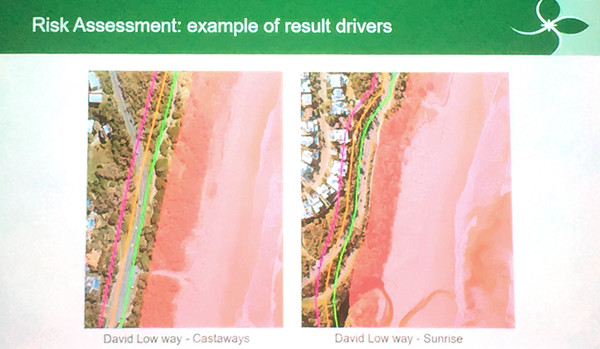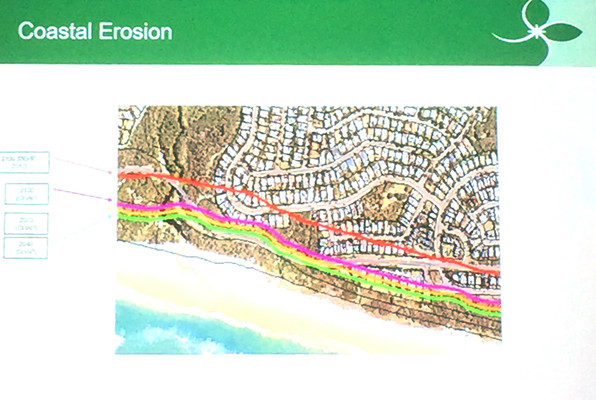The possible local appearance of tropical species such as box jellyfish, saltwater inundation of David Low Way, low lying areas beside the Noosa River and stormwater drains are among the reasons Noosa Council wants to know the emergent risks posed by climate change and how to deal with it.
While it waits for a State Government review Noosa’s Climate Change Adaptation Plan (CCAP) has been delayed 6-7 months, CCAP program coordinator Grant Hinner told Noosa Parks Association Friday’s forum as he provided an update on the plan’s progress and findings.
Grant said the climate risks could be divided into direct risks of heat, flood and coastal hazards and indirect risks such as the effects on services including energy and water.
The number one killer is heat to both humans and wildlife, he said. It is greater than cyclones, floods or bushfires.
According to a recently released State Government heatwave duration report our current longest heatwave duration of four days will increase by 2090 to two months increasing risks to health, structures and even violent assaults. Our rainfall is expected to remain the same but will occur as more intense events in summer and less in winters resulting in changes in vegetation and farming.
Grant said modelling showed stormwater drains alongside the Noosa River was very vulnerable. Operated on gravity the stormwater pipes along Gympie Terrace were not built to be permanently filled with saltwater or incur sediment buildup. Quite a lot of pipes will be filled by 2070-2100, he said it will become quite a significant issue and one there is no current answer to.
In the next 20-50 years modelling shows water rises are predicted to cause inundation and catastrophic damage to the David Low Way around Sunrise and Castaways beaches including the area where Council has just completed new car park work, as well as to the amenities block.
Grant said community feedback had found people’s main concerns to CCAP findings to date were for the affects on natural areas and the reduction of beach access but they were willing to accept interruption to services for about two weeks. Grant said legal advice told them Council had a duty of care to obtain the most up to date information but there had not yet been studies on financial management of the issues. A draft coastal hazards adaptation plan is scheduled for release on 9 October for public consultation.










